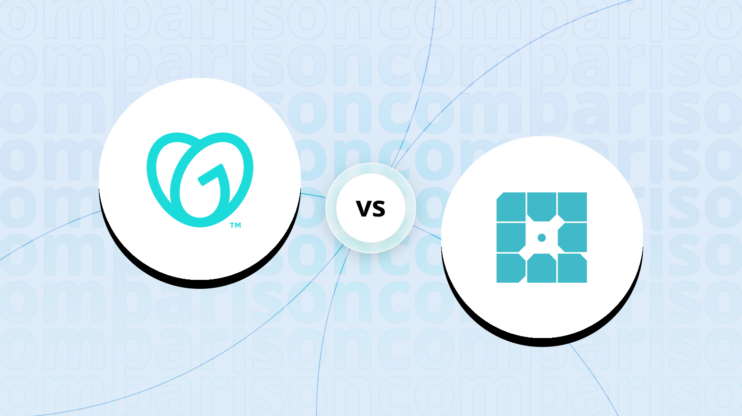Flywheel vs WP Engine: Final verdict
Looking over Flywheel vs. WP Engine, it’s clear why both hosts are so popular. They have both hosted millions of
websites that run on WordPress for decades, building up a loyal customer base.
-
WP Engine (Overall grade: 8.6)
stands out as a high-performing hosting service tailored for mission-critical WordPress sites. The platform excels with EverCache® technology, ensuring swift load times and enhanced site speed. It also caters to businesses needing robust performance and security with features like advanced DDoS mitigation and a global CDN. The pricing, while on the higher side, offers comprehensive security measures and performance guarantees like 99.99% uptime, making it a strong choice for enterprises and large businesses. However, some users may find the learning curve steep and the cost prohibitive for smaller projects.
Flywheel (Overall grade: 8.4)
offers a user-friendly experience tailored for freelancers and agencies with efficient workflow tools and comprehensive support. The platform ensures exceptional uptime and quick response times, making it an outstanding choice for hosting. With features like FlyCache for managed caching, auto-healing technology, and easy site management, Flywheel provides a seamless hosting experience, especially beneficial for those handling multiple client websites. However, it lacks built-in email hosting, which could complicate the setup for users needing complete email services. Despite this minor drawback, Flywheel remains a reliable and efficient solution for professionals managing multiple sites.
 Overall grade:8.4 |
 Overall grade:8.6 |
|
|---|---|---|
| Uptime and Availability | 9.7 | 9.6 |
| Hosting Performance | 8.2 | 9.1 |
| Hosting Security | 9.4 | 9.4 |
| Price | 8.1 | 8.1 |
| Hosting Features | 6.8 | 6.8 |
| Ease Of Setup | 8.9 | 8.3 |
| User Management | 7.8 | 8.8 |
| Customer Support | 8.5 | 8.9 |
| User feedback | 4.4/5 | 4.6/5 |
Hosting types offered
Both platforms provide a variety of hosting types, each designed to meet the different needs of users.
 |
 |
|
|---|---|---|
| Shared hosting | ||
| Cloud hosting | ||
| WordPress hosting | ||
| eCommerce hosting | ||
| VPS hosting | ||
| Dedicated hosting |
Although both offer a variety of hosting plans tailored to different needs, in
certain cases, one platform may prove to be more suitable.
Detailed comparison
Uptime and availability
Evaluates the average uptime statistics, uptime guarantee and overall availability of the hosting
provider
Score Components:
- Uptime percentage (30%): evaluates the uptime statistics in given period of time
- Uptime guarantee (20%): Assesses if the platform offers an uptime guarantee and
whether the actual uptime matches the promised guarantee. - General performance (25%): Evaluates how fast is the average response time and overall
it’s stability. - Responsiveness (10%): Adaptability to different devices and screen sizes.
- Availability (25%): Reflects the total downtime and number of outages.
 9.7
9.7
 9.6
9.6
🏆 Winner Flywheel: Exceptional uptime and quick response times make Flywheel an outstanding choice for hosting.

Flywheel boasts a higher than standard 99.9% uptime guarantee, backed by SLA, with actual performance showing 100% uptime in a two-week monitored test. The platform ensures impressive server response times averaging 371ms, well below the market average. Support is available 24/7/365, with phone support for higher-tier customers, adding reliability and trust to its service.
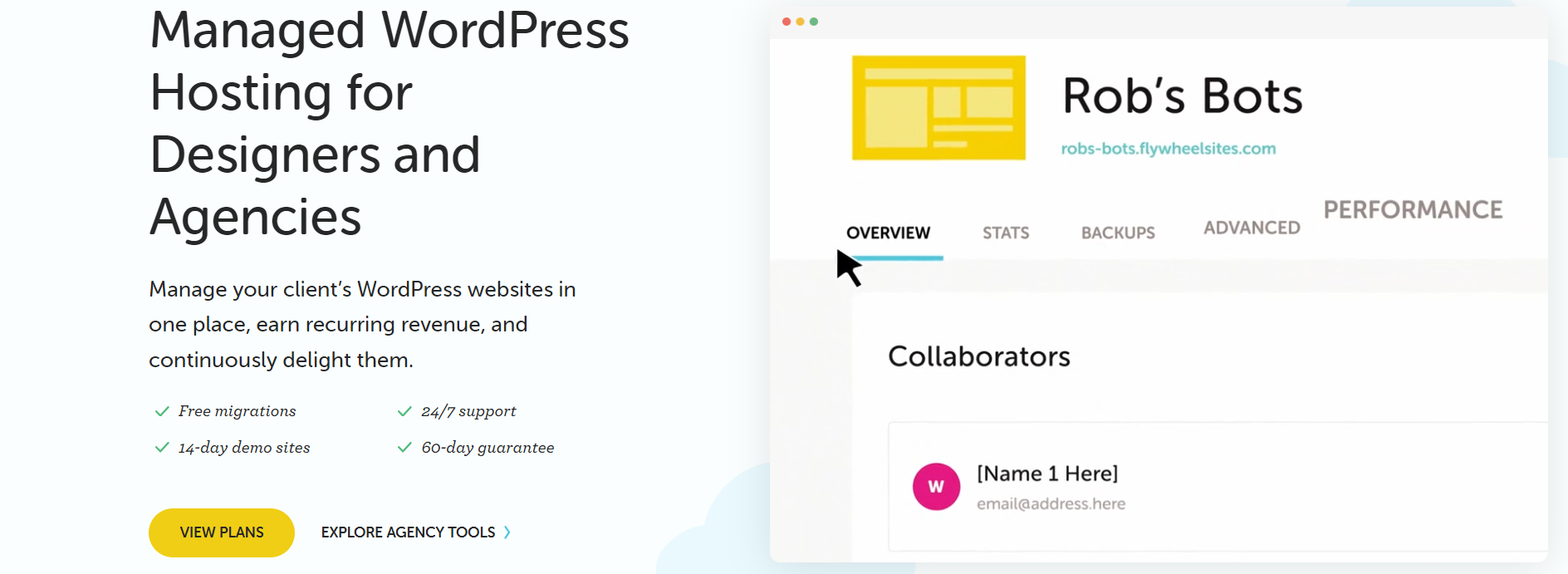
WP Engine also excels with a 99.99% SLA and demonstrated 100% uptime over two months. Server response times average at 489ms, proving WP Engine’s solid performance. WP Engine offers 24/7 uptime monitoring and proactive security, further ensuring site stability and availability. Global data centers enhance performance across regions, making WP Engine a strong contender.
Which one has better hosting performance?
Score Components:
- Hosting speed (30%): This includes SSD quality, Load times, PageSpeed score ranges,
additional information on website speed, built-in plugins for performance enhancement, available caching
methods, and CPU/RAM options - CDN (20%): Considers whether CDN is available or not, whether it’s free or paid, and
the quality of the CDN service - Available data centers (30%): Evaluates the number of data centers and their locations
globally. - Scalibility (20%): Looks at whether elastic scaling is available, the process required
to scale (manual upgrade vs. automatic scaling), the presence of dedicated servers, and the costs
associated with scaling.
 8.2
8.2
 9.1
9.1
🏆 Winner: WP Engine Known for superior speed and performance, WP Engine offers a comprehensive managed WordPress hosting solution.
Flywheel and WP Engine both excel in delivering high-performance WordPress hosting, but WP Engine stands out. WP Engine boasts EverCache® technology tailored for WordPress, optimizing it to handle heavy traffic efficiently. It also provides a global CDN with over 200 points and runs the latest PHP versions for maximum performance. Flywheel, on the other hand, has its Flywheel Cloud Platform and managed caching system. Flywheel’s CDN is powered by Fastly, ensuring accelerated page loads. Both hosts offer multiple data centers worldwide, but specific numbers and locations are more emphasized in WP Engine’s documentation.
Website Speed
WP Engine excels in website speed with its proprietary EverCache® technology, optimizing caching at a high level to handle massive traffic hits while maintaining swift load times. It also takes advantage of the latest PHP versions, enhancing overall response rates. Flywheel also focuses on speed, providing managed server-level caching, speedy servers, and Compute-Optimized Dedicated Servers for WooCommerce sites, which can enhance speeds by up to 40%. Despite this, WP Engine’s nuanced approach and technologies contribute to more consistent performance gains.
Scalability
WP Engine features a scalable architecture that can accommodate significant traffic spikes without missing a beat. Unfortunately, full details about whether the scaling is automatic or requires plan upgrades were not provided. WP Engine does offer isolated resources for optimum performance and reliability. Flywheel also supports scaling needs with custom-built plans tailored for higher traffic. While Flywheel provides compute-optimized dedicated servers, it is not explicitly clear if the scaling is automatic or requires upgrades.
Which one has better security features?
and regulatory requirements
Score Components:
- Technical security measures (40%): This includes encryption, firewalls, DDoS
protection, secure configurations, server monitoring, access control and availability of security addons
(e.g Sitelock security). - Operational security measures (30%): Encompasses data privacy, backups and data
redundancy. - Compliance and certifications (20%): Adherence to legal and regulatory requirements
(e.g., GDPR, HIPAA) and possession of certifications (e.g., ISO 27001, SOC 2). - Business and reliability (10%): Factors in the provider’s reputation, uptime
guarantees, and customer support.
 9.4
9.4
 9.4
9.4
🏆 Winner Flywheel: Flywheel stands out for its extensive compliance features and operational security measures.
Both Flywheel and WP Engine have notable differences in their approaches to technical and operational
security, as well as in their compliance with regulations.
Technical security measures:
Flywheel offers free SSL certificates and supports third-party options, while WP Engine provides free SSL certificates and comprehensive automated updates. Both hosts ensure data integrity through daily backups and proactive threat detection. Flywheel uses the Fastly WAF for application-layer protection, whereas WP Engine deploys a managed WAF with Global Edge Security. Flywheel’s auto-healing technology for WordPress sites offers an extra safeguard that WP Engine doesn’t highlight directly. Both provide plugin vulnerability notifications and real-time monitoring.
Operational security measures:
WP Engine maintains a high-efficiency security environment by blocking over 26 billion attacks annually and integrating automated threat detection. Flywheel emphasizes fast intruder detection and intelligent IP blocking across its network. WP Engine’s daily backups secure site data, paralleling Flywheel’s nightly backups stored for 30 days. Flywheel also supports role-based permissions and federated identity services, ensuring stricter access control. Both hosts offer robust customer support with 24/7 availability; however, Flywheel adds free site migrations and focused WordPress expertise.
Compliance and certifications:
Flywheel and WP Engine are both SOC 2 compliant, ensuring high standards in security and availability. Flywheel takes it a step further with additional compliance measures: HIPAA, GDPR, 21 CFR Part 11, and GCP. WP Engine holds an ISO 27001-2013 certification for information security management and offers PCI vulnerability scanning, although results may vary. Flywheel’s advanced compliance features cater to a broader range of regulatory requirements, making it highly versatile for different sectors.
 |
 |
|
|---|---|---|
SSL certificate |
Free SSL |
Free SSL |
Additional security features |
Wordfence, Sucuri |
Two-factor auth, automated updates |
PHP versions |
PHP 8.1 |
Not specified |
GDPR compliance |
Yes |
Not specified |
HIPAA compliance |
Yes |
Not specified |
PCI compliance |
Not specified |
Yes |
Hosting features
Score Components:
- Domains (20%): Assesses the availability of a free domain, domain purchase options, and
pricing - Email (15%): Considers if the provider offers full email hosting, or is reselling
third-party service, and if the email is only transactional or not - Website builder (15%): Checks if website builder is available, and it’s user
friendliness and overall the level of customization allowed. - Staging environment (20%): Determines if a staging environment is available, allowing
for testing changes before going live. - FTP & SFTP accounts (10%): Evaluates if and how easily users can access FTP and
SFTP accounts - Git and SSH access (20%): Assess whether Git is integrated into the hosting service and
if SSH access is provided
 6.8
6.8
 6.8
6.8
🏆 Winner
WP Engine: A premium hosting provider that focuses on mission-critical WordPress sites with high performance and security.
Both Flywheel and WP Engine provide exceptional managed WordPress hosting, each with unique advantages to fit different user needs. Flywheel offers a highly user-friendly experience with free migrations, comprehensive support, and a built-in local development environment. This makes it particularly suitable for freelancers and agencies who need efficient workflows and easy client handoffs. Flywheel uniquely stands out with features such as FlyCache for managed caching and efficient site performance, as well as automatic healing technology to maintain site uptime. However, it doesn’t include email hosting, which may complicate setup for users needing full email services along with their website.
WP Engine, on the other hand, targets businesses looking for robust performance and security. The platform is backed by EverCache technology for enhanced site speed and includes global edge security measures like advanced DDoS mitigation, which is vital for high-traffic sites. WP Engine’s offerings are tailored for more complex setups, supporting various development needs such as Node.js for headless WordPress and GraphQL API for advanced integrations. Although WP Engine’s initial cost is higher, ranging from $20 to $2,000 per month, its comprehensive security feature set and performance guarantees like 99.99% uptime make it a strong contender for enterprises and large businesses.
 |
 |
|
|---|---|---|
Free domain |
No |
No |
Free SSL |
Yes |
Yes |
Email hosting |
No |
No, recommends third-party |
Website builder |
No |
No |
Staging environment |
Yes |
Yes |
FTP & SFTP accounts |
Yes |
Yes |
Git and SSH access |
Yes |
Yes |
Free backup |
Yes |
Yes |
Money back guarantee |
Yes (60 days) |
No |
a location.
As a result in rare cases the features mentioned here can differ from the ones you see on their websites.
Both providers support a range of users from beginners to experts with user-friendly website builders and WordPress staging areas. However, in terms of developer tools, both Flywheel and WP Engine offer robust options including SSH access, support for multiple programming languages, and Git for version control, thus appealing to developers looking for advanced capabilities.
Email services:
Flywheel and WP Engine both lack built-in email hosting services. Flywheel recommends third-party services like Google Workspace for email needs, while WP Engine also does not offer email hosting, steering its users toward other providers for comprehensive email solutions. Both allow integration with transactional email services, but users seeking hosting platforms with native email capabilities will need to look elsewhere or utilize recommended third-party solutions.
Price
Score Components:
- Plan value (40%): What each pricing tier offers.
- Transparency and clarity (30%): Clearness of pricing structures.
- Flexibility of plans (20%): Range of options to suit different budgets.
- Hidden costs (10%): Additional expenses not included in the plan.
 8.1
8.1
 8.1
8.1
🏆 Winner WP Engine: High-performing WordPress hosting with diverse, feature-rich plans designed for different needs.
Evaluating the pricing of plans among various hosting providers can be complex due to their differing pricing and renewal strategies. Additionally, certain plans require annual commitments, which adds to the difficulty of making comparisons. The prices listed are based on monthly commitments; plans requiring annual commitments are indicated. Additionally, although some providers offer identical plans for WordPress and shared hosting, we have created separate tables for each to enhance clarity.
When comparing Flywheel and WP Engine, WP Engine offers a more diverse range of managed WordPress hosting plans specifically tailored to various needs, with the lowest plan starting at $20/month. Flywheel’s plans start at $13/month, but feature lower storage and bandwidth compared to WP Engine’s offerings. Both providers offer extensive security features, automated backups, and global CDN access, but WP Engine includes EverCache® and 24/7 customer support in all tiers. Flywheel’s Agency and Custom plans can manage more sites and offer higher data transfers, but are priced higher, making WP Engine a more cost-effective choice for many users.
 |
 |
|---|---|
|
Tiny $13/month
1 site, 5GB storage, 20GB bandwidth, includes free migrations and 24/7 support. Value for price:7.5
|
Startup $20/month
1 site, 10GB storage, 50GB bandwidth, 24/7 chat support, EverCache®, Global CDN. Value for price:8.0
|
|
Starter $25/month
1 site, 10GB storage, 50GB bandwidth, includes plugin security alerts and third-party SSL certificates. Value for price:7.8
|
Professional $40/month
3 sites, 15GB storage, 125GB bandwidth, chat & phone support, EverCache®, Global CDN. Value for price:8.4
|
|
Freelance $96/month
Up to 10 sites, 20GB storage, 200GB bandwidth, includes managed plugin updates, staging sites, and multisite. Value for price:8.0
|
Growth $77/month
10 sites, 20GB storage, 200GB bandwidth, priority support, EverCache®, Global CDN. Value for price:8.6
|
|
Agency $242/month
Up to 30 sites, 50GB storage, 500GB bandwidth, includes auto-healing technology and site cloning. Value for price:8.2
|
Scale $194/month
30 sites, 50GB storage, 500GB bandwidth, priority support, EverCache®, Global CDN. Value for price:8.8
|
|
Custom Custom pricing
30+ sites, custom storage and bandwidth, dedicated account manager. Value for price:8.4
|
Custom Starting at $600/month
Contact Sales for details, includes advanced security and performance monitoring. Value for price:8.6
|
 |
 |
|---|---|
|
N/A
|
N/A
|
 |
 |
|---|---|
|
Custom Custom pricing
30+ sites, custom storage and bandwidth, dedicated account manager. Value for price:8.4
|
Custom Starting at $600/month
Contact Sales for details, includes advanced security and performance monitoring. Value for price:8.6
|
|
Tiny $13/month
1 site, 5GB storage, 20GB bandwidth. Value for price:7.5
|
Startup $20/month
1 site, 10GB storage, 50GB bandwidth. Value for price:8.0
|
Enterprise plans
For businesses needing enterprise solutions, Flywheel offers custom plans with options for managing over 30 sites and handling millions of monthly visits, tailored to specific storage and bandwidth needs. WP Engine’s Custom plan starts at $600 per month, including premium onboarding, priority support, advanced security options, and dedicated technical account management, presenting an appealing choice for large-scale enterprises. WP Engine’s inclusion of performance monitoring and a high level of security features makes it a compelling option for enterprise users.
Flywheel vs WP Engine: Ease of setup
platform.
Score Components:
- Site migration (25%): Assesses whether the provider offers tools for site migration,
either automated or manual, and whether these services are free or require a fee. - Admin panel usability (35%): Evaluates the type of admin panel provided, such as the
standard cPanel or a custom solution, focusing on its accessibility and user-friendliness for both
technical and non-technical users. - Setup features (20%): Examines the availability and ease of use of various setup
features, including FTP accounts, file managers, email account setup, PHPMyAdmin, and easy CDN
configuration. - Help center quality (20%): Measures the quality and accessibility of the provider’s
help center resources, including articles and tutorials.
 8.9
8.9
 8.3
8.3
🏆 Winner
Flywheel: Offers a more user-friendly setup and comprehensive support resources.
Flywheel offers a highly intuitive custom admin panel designed to cater to both technical and non-technical users. The admin interface is clean, easy to navigate, and specifically tailored for WordPress hosting, which simplifies common tasks such as site management, backups, and deployments. Features like Blueprints for saving custom configurations and Site Cloning enhance development and deployment workflows. Flywheel’s streamlined approach makes it accessible for novice users while still providing powerful options for developers.
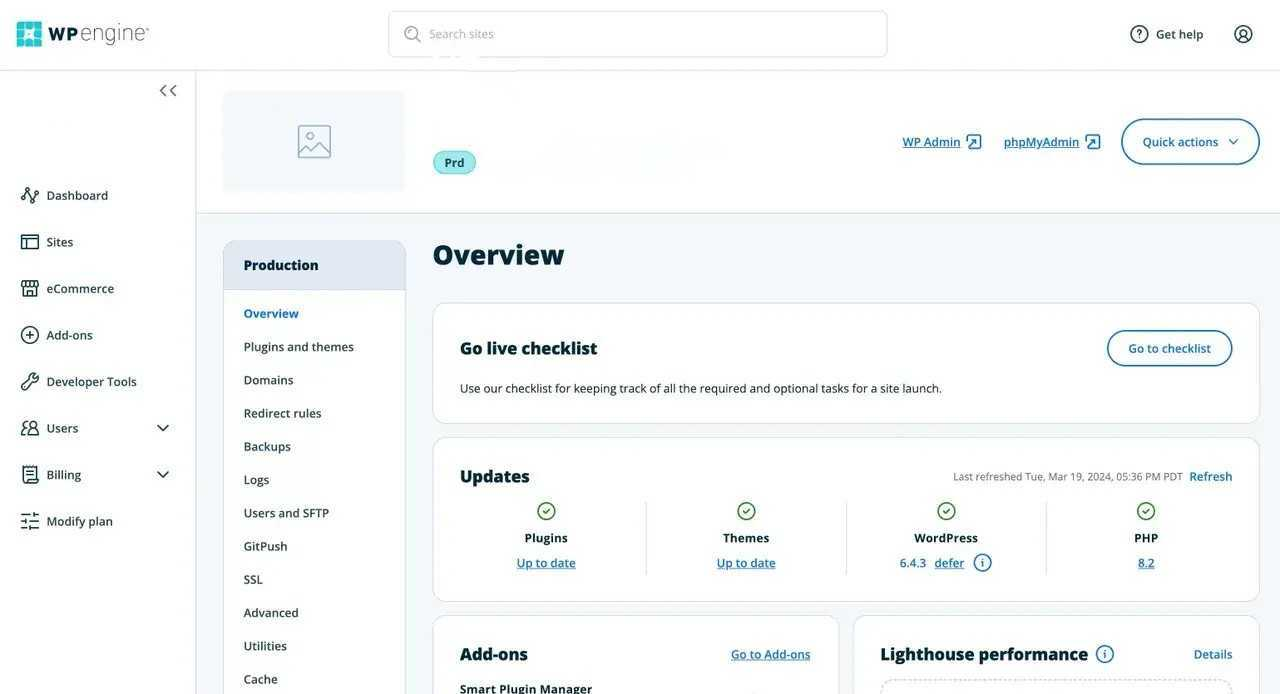
WP Engine, on the other hand, also offers a custom admin panel but focuses more on providing extensive developer tools like Git Push and SSH Gateway. Their admin panel is robust, catering to users who need advanced technical control. Despite being comprehensive, it may present a steeper learning curve for non-technical users compared to Flywheel. WP Engine’s dashboard is feature-rich but could be overwhelming for beginners who aren’t familiar with WordPress technicalities.
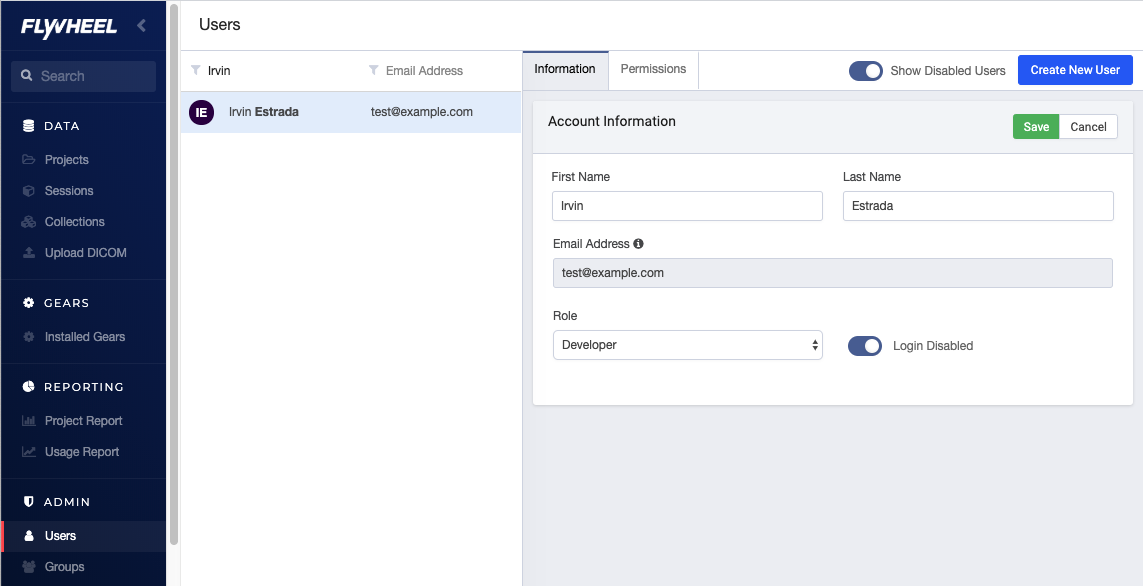
Both Flywheel and WP Engine offer robust migration tools, but Flywheel stands out with its free migration service, which can promptly transfer sites to their platform without any hassle. Flywheel also offers 14-day demo sites, which allows users to test their environment before committing. WP Engine provides an Automated Migration Plugin, simplifying the process, but if this plugin is incompatible, users must resort to a detailed Manual Migration Checklist. Despite comprehensive guides for both methods, Flywheel’s seamless, free migration service offers a more effortless experience for most users.
Both platforms offer detailed tutorials, but Flywheel’s additional support materials like ebooks, videos, and case studies provide more in-depth assistance. Flywheel has extensive help center resources, including 24/7/365 chat support, phone support during business hours, and comprehensive help documentation that covers various topics. Resources like managed plugin updates and performance insights offer ongoing site maintenance support. WP Engine also provides a comprehensive support center with articles, guides, and 24/7 technical support via phone and chat.
User management
accessibility.
Score Components:
- Role customization (40%): Flexibility in creating and defining user roles and
permissions. - Ease of management (30%): User interface and tools for managing users.
- Access control (20%): Effectiveness of access control measures for different user
levels. - Scalability (10%): Ability to manage a growing number of users efficiently.
 7.8
7.8
 8.8
8.8
Winner: WP Engine: Offers extensive user management with detailed role customization and efficient access control.
Flywheel and WP Engine both provide robust user management features, but they differ significantly in their approach. Flywheel offers a straightforward collaborator-based system where collaborators can manage almost every aspect of the site, except for billing and a few critical actions like site deletion and renaming. This makes Flywheel easy to manage but somewhat limited in flexibility. In contrast, WP Engine gives a more granular control with user roles ranging from Owner to Partial users with detailed permissions, allowing for a more customized user management setup. WP Engine’s structured approach provides better adaptability for complex user management needs.
Both platforms provide user interfaces and tools that facilitate user management. Flywheel employs a simple method to add or remove collaborators via a dashboard, which includes SFTP and database management access. WP Engine’s interface is more intricate, allowing users to be added through the User Portal, with steps involved for selecting specific roles and environments. WP Engine’s role management is more detailed, providing a checklist for permissions which enhances specificity in access level assignments. This nuanced approach enables better control over user rights and responsibilities.
Access control measures are pivotal for both hosting providers. Flywheel’s access control is effective but limited, given that collaborators cannot manage billing or delete sites, ensuring basic security. Flywheel’s Happiness Engineers also offer support for database management queries, adding a layer of usability. On the other hand, WP Engine excels with its Account Activity Log, detailing all significant user actions and site modifications. WP Engine’s capacity to handle a growing number of users through role-specific permissions ensures that as the team grows, managing who can do what becomes efficient and transparent.
Flywheel User Roles Table
| Role | Description | Access Highlights |
|---|---|---|
| Collaborator | Full access to the site except for billing. | Can manage the site, add/remove collaborators, access SFTP, manage databases, but not manage billing. |
WP Engine User Roles Table
| Role | Description | Access Highlights |
|---|---|---|
| Owner | Full admin privileges across the entire platform. | Can delete sites, move sites to other accounts, manage users, upgrade plans, and more. |
| Full (with billing) | Broad access including billing management. | Can access billing, initiate transfers, enable Smart Plugin Manager, but cannot delete sites or users. |
| Full (no billing) | Access to nearly all features minus billing responsibilities. | Can manage Smart Plugin Manager, accept transferable sites, but no billing or site deletion permissions. |
| Partial (with billing) | Limited to specific environments with billing access. | Can make billing changes, initiate site transfers within their environments, but cannot delete sites. |
| Partial (no billing) | Restricted to designated environments without billing capabilities. | Can modify specified environments, manage SFTP logins, but cannot initiate site transfers or billing. |
Customer support
hosting provider.
Score Components:
- Support communication channels (30%): Measures the variety of customer support types
provided (live chat, chatbot, email, phone, etc.) - Availability (20%): Assesses the availability hours for each channel, including 24/7
support options. - Technical support quality (30%): Assesses whether the provider offers comprehensive
technical support, including hardware upgrades (e.g., HDD to SSD), software installations, and web
server configuration changes. - Enterprise support (20%): Checks if there are dedicated or priority support services
for enterprise-level customers.
 8.5
8.5
 8.9
8.9
🏆 Winner
WP Engine: A top-end choice for hosting solutions with comprehensive 24/7 support.
 |
 |
|
|---|---|---|
Phone support |
||
Live chat support |
||
Chatbot |
||
Email/ticket support |
||
Enterprise support (dedicated agent, priority support) |
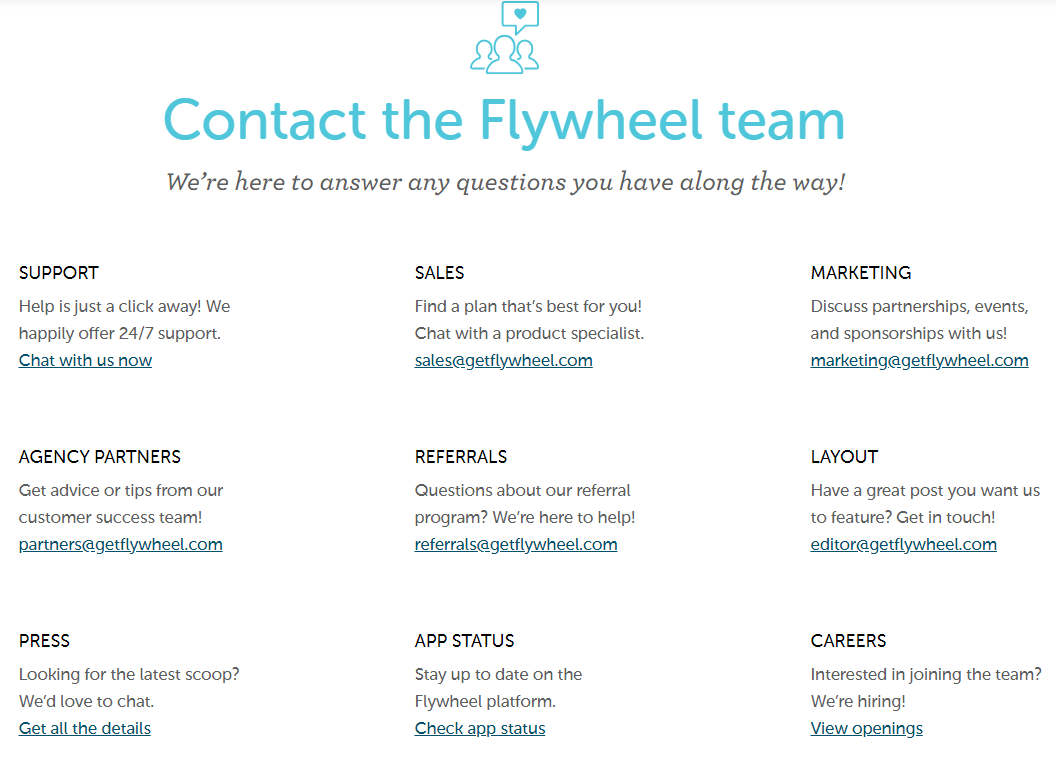
Flywheel provides extensive customer support options, including 24/7 chat support, email/ticket support, and phone support available during business hours. They also offer free site migrations, a dedicated account manager, and specialized support for agencies, freelancers, and high-traffic sites. Flywheel’s 60-day money-back guarantee and comprehensive performance insights further enhance their appeal.

WP Engine also offers 24/7 support through phone and live chat, catering to both standard and premium plan users. Their user portal simplifies account management, while an extensive knowledge base and migration assistance streamline the support experience. WP Engine includes enterprise-grade security features, DDoS protection, and managed web application firewalls, ensuring high levels of customer satisfaction.
Flywheel vs WP Engine: User feedback
Flywheel is highly regarded for its intuitive user interface, efficient WordPress management, and reliable speed and performance. Customers appreciate the ease of site migration, robust support, and included features like SSL and backups. However, some users highlight concerns over recent pricing changes, slower customer service response times, and issues with email limits and staging environments. Despite a few drawbacks, Flywheel is praised for its agency-oriented focus, making it a strong choice for professionals managing multiple client websites.
WP Engine exudes excellence in managed WordPress hosting, boasting top-notch technical support that’s often highlighted as a standout feature. Users appreciate the user-friendly dashboard, seamless migration tools, daily backups, and solid security measures, all of which contribute to high performance and reliability. However, the service does come at a higher price point, which some users find steep, especially for entry-level plans or smaller projects. Despite occasional concerns about costs and some technical nuances, WP Engine’s premium service quality justifies the expense for many, making it a highly recommended solution for businesses and developers alike.
Flywheel vs WP Engine: FAQ
Which platform is better suited for hosting WordPress websites?
Both Flywheel and WP Engine are excellent choices for hosting WordPress websites, with each offering tailored solutions for different user needs. Flywheel is designed for a user-friendly experience, making it ideal for freelancers and agencies, while WP Engine focuses on robust performance and security for enterprise-level sites. Both platforms deliver outstanding performance, although WP Engine’s EverCache® technology and global CDN offer slightly superior speed and scalability, making it particularly strong for more complex setups.
Which hosting service offers better security features?
WP Engine tends to offer better security features compared to Flywheel, with advanced DDoS mitigation, a managed WAF with Global Edge Security, and extensive automated updates. Flywheel also delivers strong security with free SSL certificates, proactive threat detection, and auto-healing technology. However, WP Engine’s comprehensive security measures, including blocking over 26 billion attacks annually, generally make it the stronger choice for users needing enhanced protection.
What are the major differences in pricing and value between Flywheel and WP Engine?
Flywheel offers more budget-friendly plans starting at $13/month, while WP Engine’s lowest plan starts at $20/month. Flywheel tends to provide lower storage and bandwidth at a given price point compared to WP Engine. WP Engine, though more expensive, includes features like EverCache® and a global CDN in all tiers, making it a more cost-effective choice for users looking for robust performance and security. Both platforms, however, offer extensive security features and automated backups.
Which hosting service offers more scalability options for growing websites?
WP Engine offers a scalable architecture that efficiently handles significant traffic spikes, though it’s unclear if scaling is fully automatic or requires plan upgrades. Flywheel also supports scaling needs with custom-built plans, particularly their Compute-Optimized Dedicated Servers. While both providers accommodate growth, WP Engine’s detailed scalability options and isolated resources make it a more robust choice for rapidly growing websites.
Which platform offers better customer support?
Both Flywheel and WP Engine provide excellent customer support, including 24/7 live chat and email/ticket support. Flywheel goes further with phone support during business hours and free migration services, making it convenient for users starting off. WP Engine offers 24/7 phone support for all plans and has a comprehensive support center, making it highly efficient for resolving technical issues. Therefore, while both platforms are strong in support, WP Engine’s round-the-clock phone support gives it an edge.
The making of this blog
We followed a clear, step-by-step process to write and research this article.









